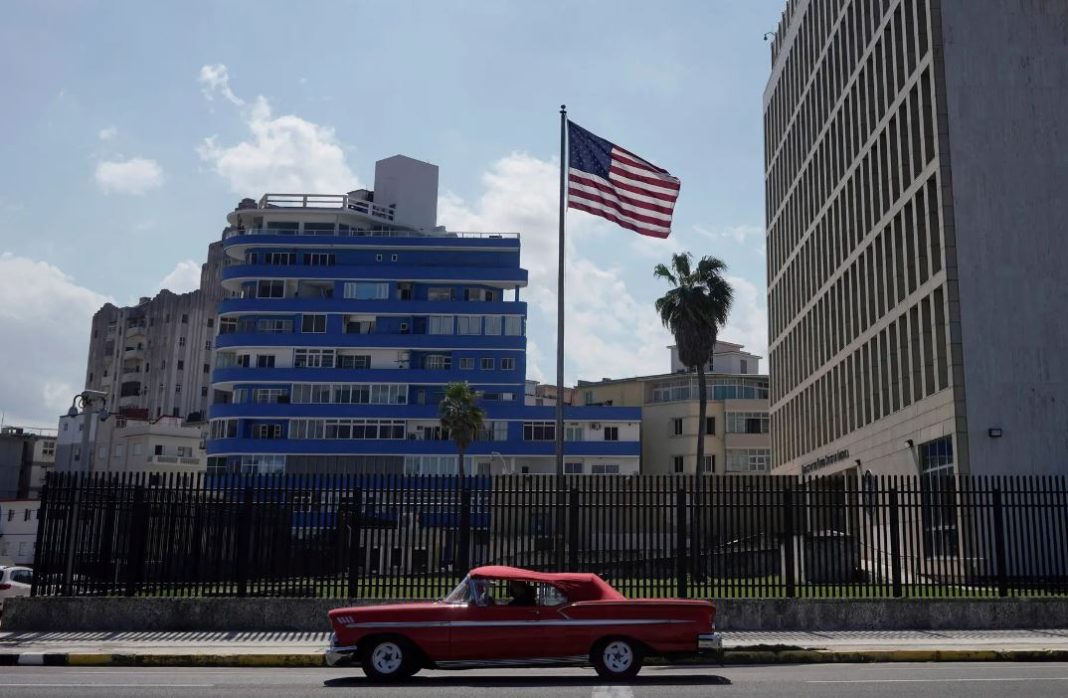Recent studies conducted by the National Institutes of Health (NIH) have failed to uncover evidence of brain injury in scans or blood markers of diplomats and spies experiencing symptoms of Havana syndrome. These findings align with the conclusions reached by U.S. intelligence agencies, which suggest that the mysterious health incidents are unlikely to be the result of a deliberate attack by a hostile foreign power. Instead, environmental factors, pre-existing medical conditions, or stress are believed to be more plausible explanations for the symptoms.
The lead scientist behind one of the studies noted that while the research wasn’t specifically aimed at pinpointing a cause, the results are consistent with the aforementioned determinations. However, these findings contradict those of researchers at the University of Pennsylvania, who identified differences in brain scans between individuals with Havana syndrome symptoms and a control group.
Dr. David Relman, a respected scientist with access to classified files related to the cases, criticized the new studies, pointing out that many brain injuries may not be detectable through conventional scans or blood markers. He emphasized that the absence of evidence in the NIH studies does not necessarily rule out the possibility of an external force, such as a directed energy device, being responsible for the injuries.
Published in The Journal of the American Medical Association, the NIH studies were accompanied by an editorial by Dr. Relman, which questioned their validity. The onset of the incidents associated with Havana syndrome began to intensify towards the end of 2016 and into 2017 in locations like Havana, China, Austria, and elsewhere. The Biden administration, upon taking office in 2021, pledged to address the healthcare needs of affected diplomats and spies and to investigate the root cause of the symptoms.
Previous research by the University of Pennsylvania suggested that individuals affected by Havana syndrome may have sustained brain injuries distinct from conventional concussion injuries. In contrast, the NIH studies focused on a different cohort, with only a minority of cases overlapping. Dr. Leighton Chan, the lead author of one of the studies, explained that the participants included individuals from various locations, including Cuba, China, Vienna, and the United States.
Despite examining brain scans, the NIH researchers found no significant differences between the study participants and the control group. They emphasized the precision of their scans, conducted in a research setting, compared to previous clinical studies. Additionally, they highlighted the improved rigor of their study due to the closer matching of the control group to the study participants.
The NIH scientists did not diagnose the patients with traumatic brain injuries but instead identified their conditions as functional neurologic disorders, often attributed to stress. While the studies did not rule out the possibility of an external cause for Havana syndrome symptoms, stress emerged as a potential explanation for the findings.
However, individuals experiencing Havana syndrome symptoms expressed frustration and disbelief at the NIH diagnosis, viewing it as dismissive and misguided. Dr. Relman underscored that certain cases could not be explained solely by stress or psychosocial factors and suggested that concealable directed energy devices might be responsible in specific instances.
Concerns were also raised about the ethical implications of the study, with some patients reportedly feeling pressured to participate to receive treatment. Nonetheless, Dr. Chan maintained that participation was voluntary, and individuals could withdraw at any time.
Critics, including attorney Mark Zaid, cautioned against the misuse of the NIH study by intelligence agencies to support their assertions of an absence of evidence as evidence itself. This, they argued, could undermine efforts to investigate potential external causes of Havana syndrome cases.

